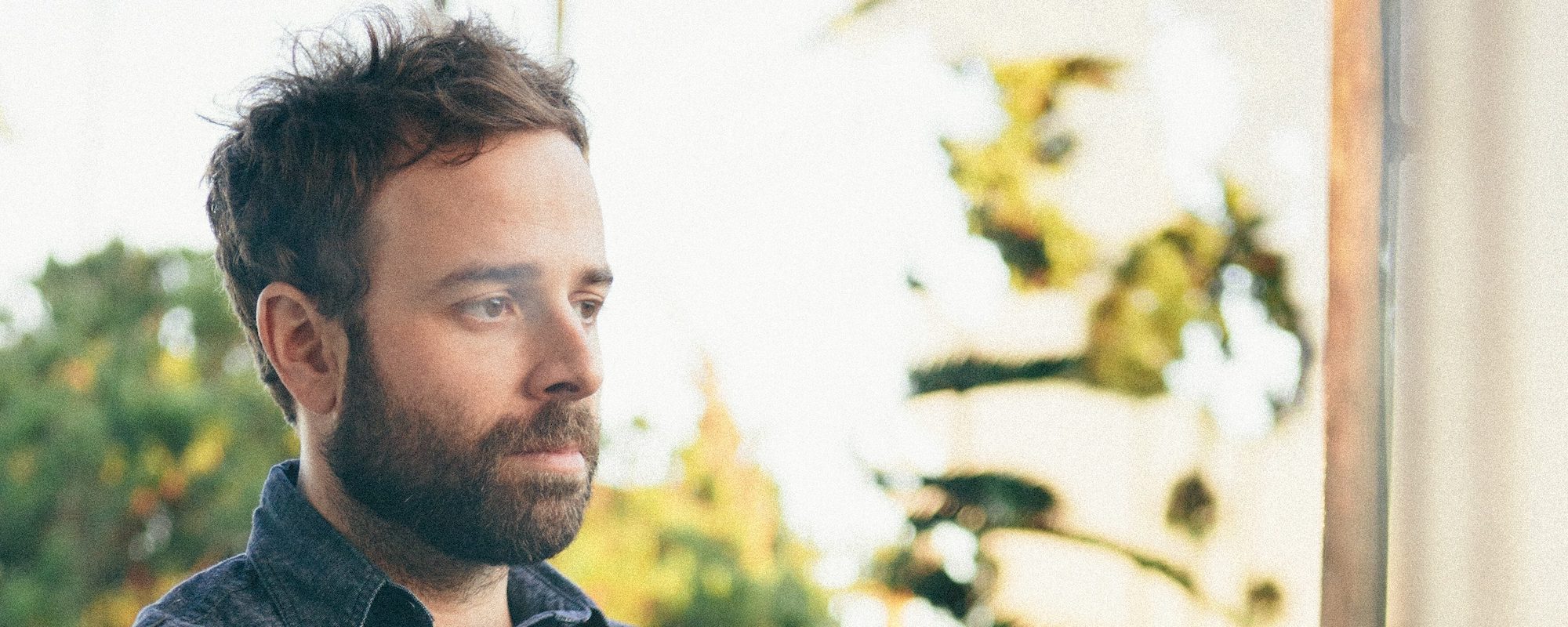
Videos by American Songwriter
Most of this can be chalked up to the band’s tireless commitment to musicianship: it’s something they take extremely seriously, and never for granted. While not on tour, Griffin practices drums daily, often for 3 to 4 hours at a time. Taylor, even when not working on lyrics, rarely lets himself enjoy some casual time off. “If I’m not writing, the most productive thing I think I can be doing is reading or watching a movie,” he says, and spends a lot of time in his Malibu home, a small guesthouse on the property of a friend, doing just that. He’s gathered a collection of books so large that they cover every usable surface – the piano, the dresser, the kitchen table. He favors authors he grew up with, like Henry Miller, F. Scott Fitzgerald and Joan Didion (from whose novel Democracy they found the inspiration for Stories Don’t End’s title).
“Those dudes never quit,” says Jonny Fritz, who toured with Dawes and Middle Brother while still relatively unknown. The members of the band will also be featured on his next release, Dad Country. “Griffin never stops practicing drumming. His metronome is always going and he rarely takes breaks from it. Although maddening as it is, nobody would dare ask him to shut the fuck up because when you get him on the stage (or studio) you see the payoff. That kid’s drumming is downright embarrassing sometimes. Nobody that young should be that good at something. All of them are like that and it’s inspiring as hell.”
“The fact that we get a rap for being a band that can play well is so amazing,” says Griffin. “Because the level of musicianship in general is certainly lower than what it used to be.” This commitment to craftsmanship is also part of the reason Dawes so often has that “vintage” moniker thrown at them – Taylor’s guitar solos remind people of the old days because that’s when we were just more used to seeing that style of play. And the other three enjoy session work in a way not quite embraced by music’s current younger generation. In concert is really where they shine: “we’re a live band that makes records,” Tay says.
Taylor and Griffin grew up surrounded by music – their father, Lenny Goldsmith, was in 70’s funk band Tower of Power, and he didn’t let the boys off easy when it came to their craft. “Griffin and I grew up jamming with our dad,” Taylor says. “He’d say, ‘hey, come on up here and play with us,’ and we’d have to think on our feet really fast.” It was from those days that the brothers learned the invaluable skill of being able to simply “sit down and listen for chords and play along.”
In high school, Taylor formed his first band, Simon Dawes, with Wylie, Blake Mills (now a solo artist) and drummer Stuart Johnson, who was also Griffin’s drum teacher at the time. In his forties, he was a good deal older than the rest of the guys. They saw some success, touring with The Walkmen, Incubus and Maroon 5, and grew a small fan base. But their biggest admirer? Griffin. “All I wanted to do as a teenager was play drums in Simon Dawes,” he says.
Eventually, Johnson decided he no longer wanted to tour, and Griffin got a chance to sit in on a few shows. They disbanded in 2007, but you can still find relics on the internet – namely, a WordPress blog called “Africadabra,” primarily a tour diary with things like photos of a bagel they ate in New York and an entire post dedicated to a Wal-Mart outing with some members of Incubus, where Taylor posed in some red sunglasses and tried to ride a tiny pink tricycle, and everyone else looked for the perfect “boating” hat. And though Simon Dawes didn’t stick, one thing did: the permanent combination of the brothers Goldsmith.
“When our first band broke up,” Taylor says, “that’s when it set in that I wasn’t writing anything I was particularly proud of. A good part of me was like, maybe I should just go to school, hang it up.” Instead, he started working on new songs that embraced his love for narrative song structure, and formed Dawes with Griffin, Wylie and Alex Casnoff – while Tay played with the group in its early days, a previous commitment to Edward Sharpe and the Magnetic Zeros had him leave the band until 2010, when Casnoff moved on.
And the other reason that Dawes so often gets stuck with the Laurel Canyon stigma, if you will, is because of an equally mythical first performance – the foursome played at one of the infamous jams at Wilson’s house, that have drawn the likes of Chris Robinson, Conor Oberst and Jenny Lewis.
“They did some songs and everyone was like, what is up with this?” says Wilson, calling from his home in Los Angeles. “I was immediately so stoked about these guys. The first thing I noticed was their dedication to the craft – because these days I notice holes in concentration. They later came back with some demos and I was blown away.”
Wilson immediately wanted to work with the band on producing their record in his home studio, which has since moved to Echo Park. But others were jockeying for the post, too. “There had been a bit of a producer showdown,” he says, “guys that had a pedigree, but maybe they didn’t have the style the band was after at that time.”













Leave a Reply
Only members can comment. Become a member. Already a member? Log in.